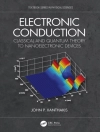The Russian coal sector today faces challenges in the form of global decarbonization, sanctions, and difficulties in retaining market access and competitiveness. This new market environment warrants an examination of what lessons can be drawn from the past tribulations of one of Russia’s most iconic and strategically important industries. This book analyzes the Russian coal industry developments in historical and political contexts, including those of energy transition. The key tenets of contemporary dialogue between Russia and those who advocate for a speedy energy transition to phase out coal are presented. The book addresses the question of the coal industry as a sacrifice for the sake of Russia’s rapprochement with the West. The contribution of this book, therefore, is filling the gap between two large research inquiries – climate change mitigation and energy transition on the one hand, and the existing large coal industry of a given country on the other.
Daftar Isi
Chapter 1: Introduction.- Chapter 2: Coal in the Soviet Economy.- Chapter 3: Reforms in the Russian coal sector.- Chapter 4: Regional trends within the Russian coal sector: Cases of Komi, Kuzbass and Sakhalin.- Chapter 5: Modern Coal Companies of Russia.- Chapter 6: Interconnections between international coal and natural gas markets.- Chapter 7: Russian Coal Sector in the Age of Climate Change.- Chapter 8: Conclusions.
Tentang Penulis
Nikita Lomagin is Academic Director of the Energy Policy and International Relations Research Center (ENERPO), European University at St. Petersburg and Professor in the World Economy Department at St. Petersburg State University. He was a postdoctoral fellow at the Davis Center for Russian Studies at Harvard and researcher at the Kennan Institute, University of Michigan Law School, Finnish Institute for international relations.
Irina Mironova is Associate Research Fellow at the ENERPO Research Center. She held research and teaching positions at ERIRAS, Gubkin University of Oil and Gas; Venice International University; OSCE Academy in Bishkek; Energy Charter Secretariat. Since 2018, Irina works at the Strategy Department of one of the Russian energy companies.
Maxim Titov is a seasoned professional with over 20 years of practicing Sustainable Energy and Sustainable Finance at international development institutions. He joined the European University at Saint-Petersburg in 2016 as an Executive Director of ENERPO. Maxim served as a visiting professor at the Venice International University for the 2018 spring semester.
Michael Oshchepkov is an economist currently working in the energy sector. He has experience in energy market research, corporate sustainability reporting analysis, and speaking at international conferences on energy topics. Besides, Michael is a Research Fellow at the ENERPO Research Center and a climate change advocate at Climate Scorecard, an NGO.












